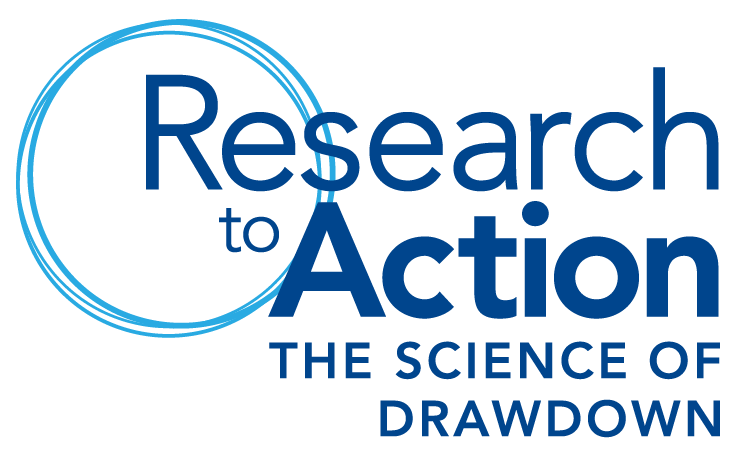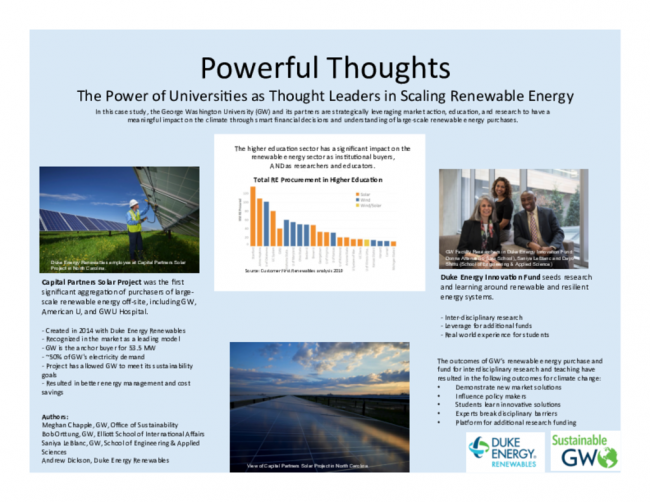As the second largest contributor to GHG emissions, the U.S. has a responsibility to curb its energy usage. American college and university campuses are as big as small cities, yet they act like large retail electricity consumers that wield control over their energy sources. Campus administrators can now choose renewable energy that is cost-effective. Already more than 150 colleges and universities in the U.S. are purchasing some level of renewable energy, and many are making utility-scale agreements for solar and wind generation. This purchasing power, combined with the university’s commitment to research and education, position the higher education sector to serve as a thought leader in the use of renewable energy.
The George Washington University (GW) and its partners are strategically leveraging market action, education, and research to have a meaningful impact on the climate through smart financial decisions and understanding of large-scale renewable energy purchases. Through the Capital Partners Solar Project, Duke Energy Renewables provides GW and its partners with 53 MW of solar power. An extension of that partnership, the Duke Energy Innovation Fund, supports faculty to collaborate with scholars and experts in other fields, and explore new avenues to solve real-world problems. This partnership also offers GW students the opportunity to develop critical, hands-on skills in renewable energy, sustainability, and innovation. This case lays out how other universities can buy renewable energy, and position their purchase to educate students as future leaders about renewables, and policy-makers and decision-makers in the surrounding communities as well.


